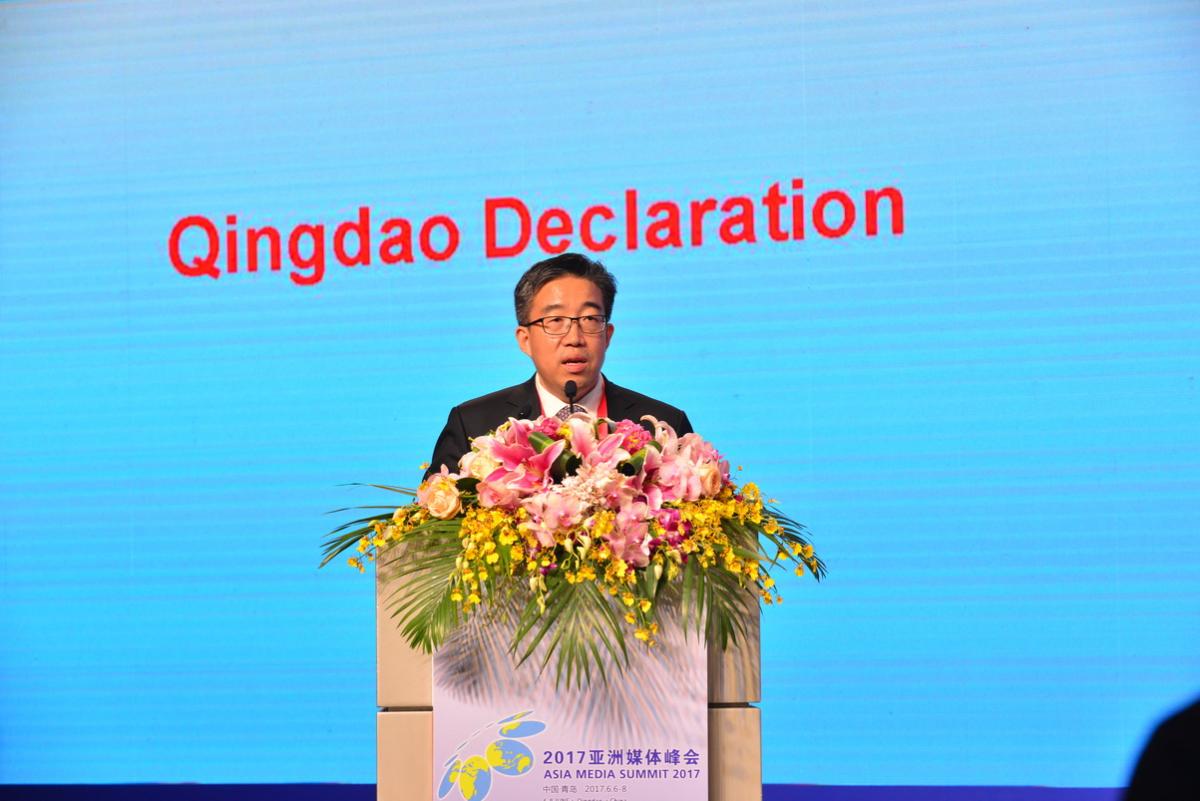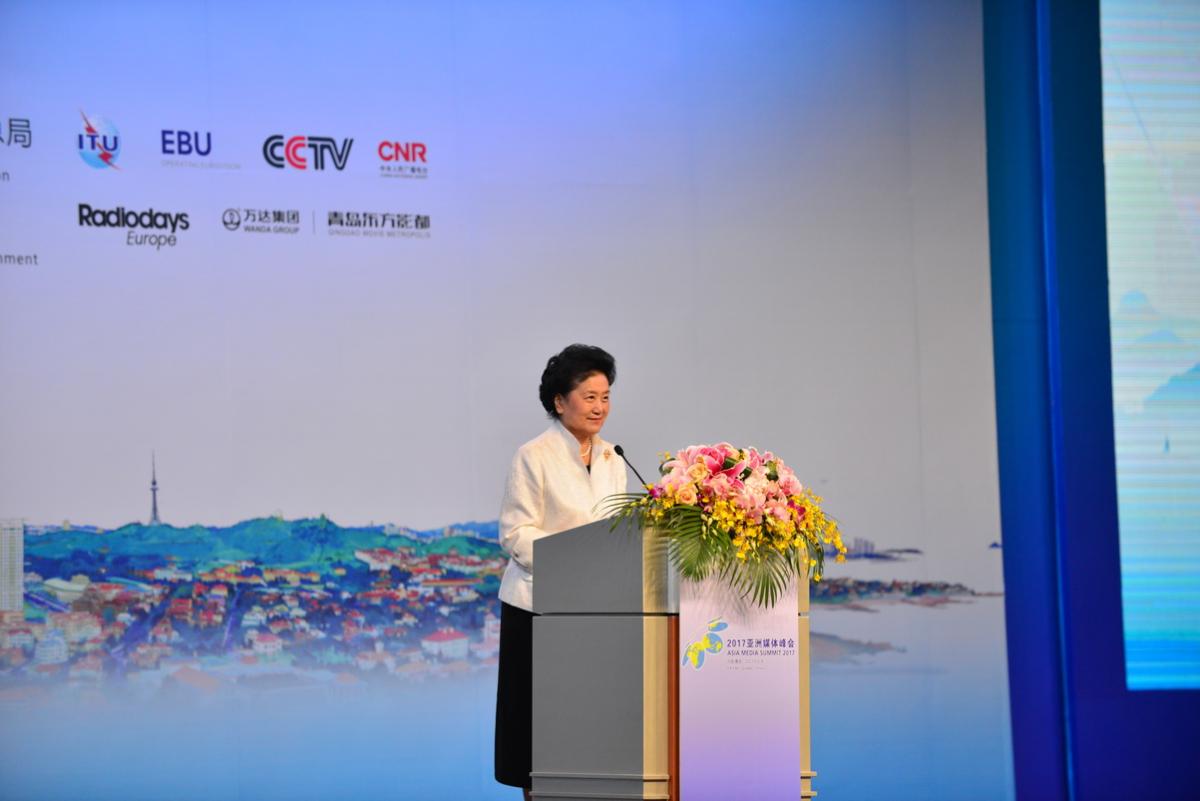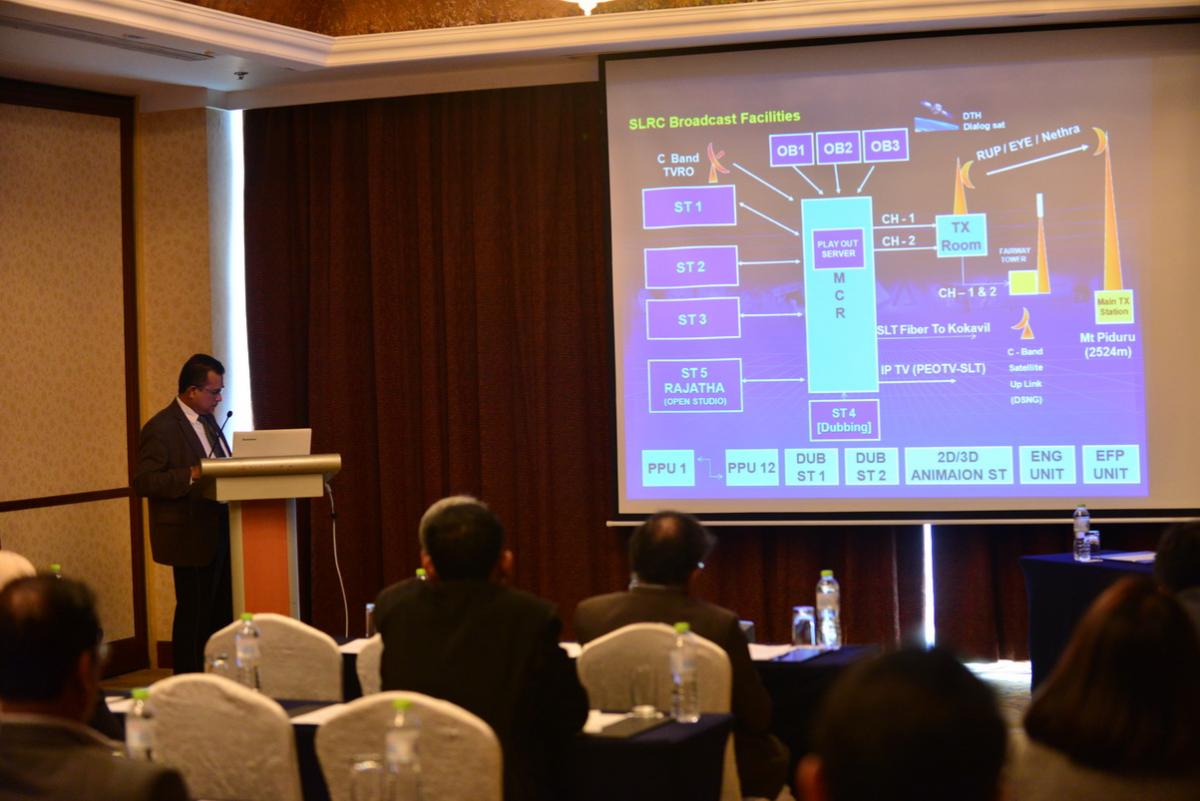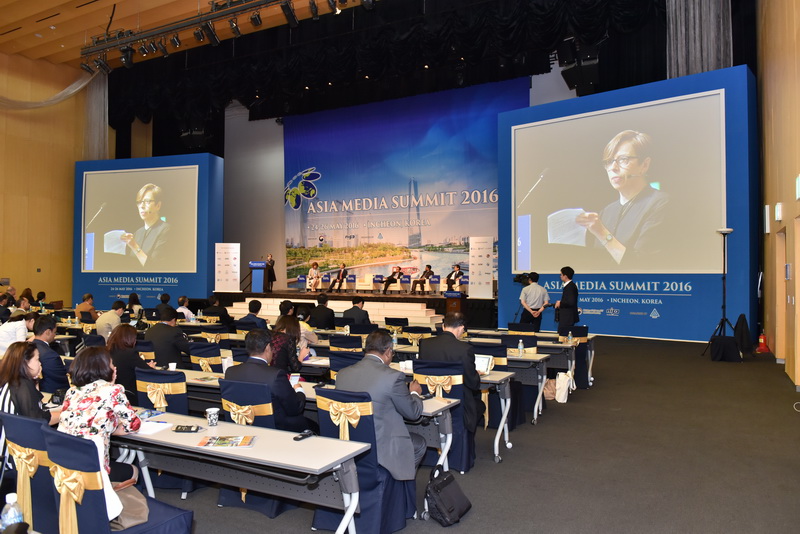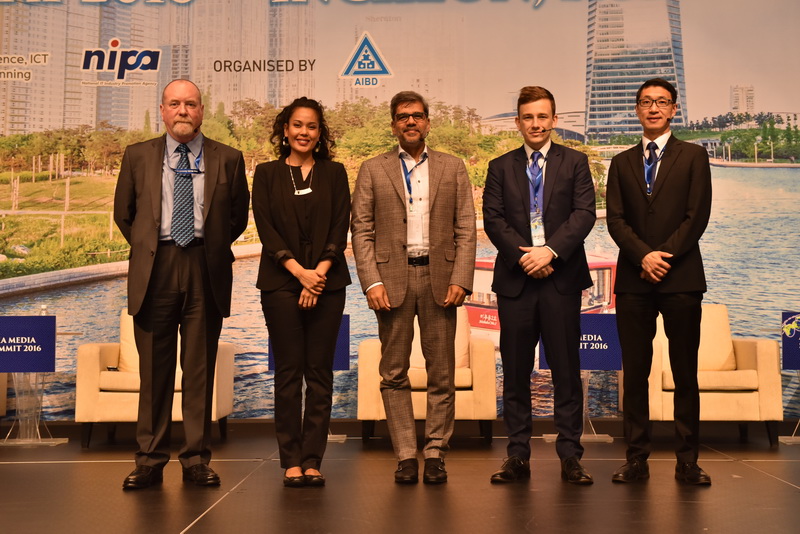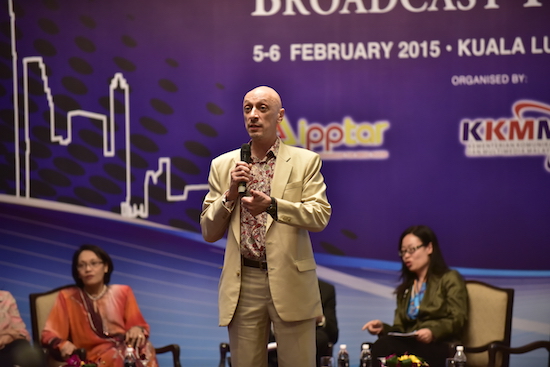Preamble:
Mindful of the pressing challenges facing our world, among them, poverty, conflict, socioeconomic inequality, environmental degradation and climate change that call for urgent and concerted action to accelerate development and progress in our society;
Noting that there are several creative and innovative mechanisms to achieve sustainable development, appropriate to every country’s own needs, expectations and pace of development, and demanding participation and support from government, private sector, civil society, local communities, families and individuals alike;
Preamble:
Mindful of the pressing challenges facing our world, among them, poverty, conflict, socioeconomic inequality, environmental degradation and climate change that call for urgent and concerted action to accelerate development and progress in our society;
Noting that there are several creative and innovative mechanisms to achieve sustainable development, appropriate to every country’s own needs, expectations and pace of development, and demanding participation and support from government, private sector, civil society, local communities, families and individuals alike;
Supporting the 2030 Agenda for Sustainable Development, adopted unanimously by 193 United Nations Member States in September 2015, and its framework of 17 Sustainable Development Goals (SDGs) and their ambition to end poverty, protect the planet and ensure prosperity for all over the next 15 years;
Aware that sustainable development demands effective and efficient management of our limited resources, that necessitates a system of accountability beneficial to governance;
Emphasising that practitioners in traditional and emerging media are among key stakeholders, as they can raise public awareness, change attitudes and behaviours favourable to serving the ends of development without risking professional and ethical standards; III. UN Agencies and international non-profit organisations
Mindful of the need to expand partnerships in meeting the demands of sustainable development, and the needs of media to pursue growth, we seek cooperation and support of UN agencies and international organisations to work on the following measures:
a. to support the fostering of public participation and safeguarding the right to information, right to speech and right to supervision, and support media to play their complete role in reporting sustainable development initiatives.
b. to assist in identifying and obtaining diverse resources helpful in media’s tasks to report sustainable development issues.
c. to promote and monitor safety of journalists.
d. through various mechanisms, to support media programmes, including AIBD’s initiatives, that enhance skills and competences of journalists, editors, production and technical collaborators, needed to provide balanced reporting
Believing that media can play a positive role in fostering public participation and safeguarding the right to information, right to speech and right to supervision in the pursuit of sustainable development;
Recalling past efforts of the Asia Pacific Institute for Broadcast Development (AIBD) to support discussion and debate on development issues in previous Asia Media Summits and national and regional workshops, and to partner in UN-led communication programs, in particular for the Millennium Development Goals (MDGs);
We, media stakeholders in the broadcast industry who participated in the 14th Asia Media Summit 2017 held in Qingdao, People’s Republic of China on June 6-8, 2017, hosted by the State Administration of Press, Publication, Radio, Film and Television (SAPPRFT) of the People’s Republic of China and the Qingdao Municipal People’s Government, focused on the theme “Media on the Frontline of Global Development,” do hereby reach the following understanding:
I. Media
Cognisant of media’s role to ensure messages of sustainable development are heard and heeded in the Asia Pacific region and in our world, we endeavour to promote the following:
a. to optimise media resources, including the use of new media and social media, in acknowledging the importance of promoting a more sustainable future.
b. to work towards supporting the SDGs and publishing the outcomes of SDGs-based activities and programmes carried out by the relevant authorities, businesses and civil society. This could involve allocating more resources for coverage of sustainable development stories, whether the stories are of international, national or local nature.
c. to support efforts to train broadcast editors and journalists, in order for them to better understand diverse nuances of sustainable development issues and improve reporting in various media platforms.
d. to support the public’s right to participation, right to information, the right to speech and the right to supervision, through accurate, balanced and fair media reporting which includes background and context, so as to contribute to public understanding and analysis of sustainable development concerns and achievements.
e. to focus on community issues, in particular affected vulnerable, marginalised and discriminated peoples, in highlighting the various dimensions and challenges of sustainable development in societies, in the spirit of leaving no one behind.
f. to promote media literacy by developing greater critical awareness and understanding of media content, in particular SDGs concerns, among listeners, viewers and readers, building their confidence and skills to become media literate, and encouraging consumers to move from passive to active media consumption.
g. To strengthen community-led media activities through promotion and support to community radio movement and to skills development and capacity building of radio and video volunteers at grassroot levels, to ensure capture and dissemination of authentic development stories.
h. to help ensure safety of journalists as recognised in the UN Plan of Action on the Safety of Journalists and the Issue of Impunity.
i. to increase diversity and parity in media organisations, through adoption of human resources policies favourable to the entry and promotion of competent people regardless of gender, age and status in life.
j. to promote gender-aware media policies and strategies, to foster gender-balanced voice and participation of men and women, young and old, that will enhance public debate, and combat historical prejudices, discrimination and biases to ensure equal enjoyment of rights and enhance human respect.
k. in view of the fact that sustainable development is a matter of rights, to play a proactive role in supporting societies, communities and individuals to create and articulate development demands, facilitating and supporting achievement of development goals.
l. to encourage media organisations, including our own entities, to undertake SDGs projects as part of their corporate social responsibilities, working with government, private sector and civil society to generate better outcomes.
m. to reflect a diversity of views and perspectives in various programme genres that will offer listeners and viewers a broad range of information and ideas.
n. to encourage investigative journalism that can provide in-depth, comprehensive and analytical presentation of SDG issues and concerns.
o. to carry out the above activities according to domestic laws and national legislations, and to international commitments and universal values.
II. GovernmentsIII. UN Agencies and international non-profit organisations
Mindful of the need to expand partnerships in meeting the demands of sustainable development, and the needs of media to pursue growth, we seek cooperation and support of UN agencies and international organisations to work on the following measures:
a. to support the fostering of public participation and safeguarding the right to information, right to speech and right to supervision, and support media to play their complete role in reporting sustainable development initiatives.
b. to assist in identifying and obtaining diverse resources helpful in media’s tasks to report sustainable development issues.
c. to promote and monitor safety of journalists.
d. through various mechanisms, to support media programmes, including AIBD’s initiatives, that enhance skills and competences of journalists, editors, production and technical collaborators, needed to provide balanced reporting
We encourage governments in the Asia Pacific and other parts of the world to support media in their efforts to promote the SDGs. We urge them to promote the following:
a. to work towards universal access to the Internet and other ICTs that can facilitate free flow of information and public participation.
b. to promote an enabling environment for media to flourish, and to support media’s positive role in fostering public participation and safeguarding the public’s right to information, right to speech and right to supervision, particularly in covering agendas related to sustainable development.
c. to enhance public awareness and understanding of the SDGs.
d. to ensure safety of journalists, especially those who are at risk of being harassed or attacked in pursuit of their work, and rapid and effective investigation and punishment of harassment and attacks against journalists.
e. to support training activities of practitioners in government-owned and run media organisations that will enhance skills and competences useful in balanced reporting on SDGs.
III. UN Agencies and international non-profit organisations
Mindful of the need to expand partnerships in meeting the demands of sustainable development, and the needs of media to pursue growth, we seek cooperation and support of UN agencies and international organisations to work on the following measures:
a. to support the fostering of public participation and safeguarding the right to information, right to speech and right to supervision, and support media to play their complete role in reporting sustainable development initiatives.
b. to assist in identifying and obtaining diverse resources helpful in media’s tasks to report sustainable development issues.
c. to promote and monitor safety of journalists.
d. through various mechanisms, to support media programmes, including AIBD’s initiatives, that enhance skills and competences of journalists, editors, production and technical collaborators, needed to provide balanced reporting on SDGs.
Qingdao Declaration on Media and the World’s Sustainable Development Qingdao, China, June 7, 2017
Preamble:
Mindful of the pressing challenges facing our world, among them, poverty, conflict, socioeconomic inequality, environmental degradation and climate change that call for urgent and concerted action to accelerate development and progress in our society;
Noting that there are several creative and innovative mechanisms to achieve sustainable development, appropriate to every country’s own needs, expectations and pace of development, and demanding participation and support from government, private sector, civil society, local communities, families and individuals alike;
Enhance Media Exchanges and Cooperation to boost Global Common Development Speech at the Opening Session of Asia Media Summit 2017 Qingdao, June 6, 2017
President Ali-Askari,
Director Chang Jin,
Distinguished Guests,
Ladies and Gentlemen,
Dear Friends,
Good morning!
In this lovely season of midsummer, flowers blooming like a piece of brocade. I’m delighted to come to the coastal city of Qingdao, with representatives from 48 countries and 7 international organizations, for the opening session of Asia Media Summit 2017. Let me begin by extending warm congratulations on the opening of the Summit. I’d like to convey sincere greetings and best wishes to all the distinguished guests coming from afar, as well as participants from the Film Capital Summit!
Dealing with the Challenges of Digital Migration
The ITU Regional Office for Asia and the Pacific says costs, enormity of task, lack of government support and cooperation among stakeholders, and ever evolving technologies remain as some of the challenges in the migration from analogue to digital in the region.
“Not only does the setup of infrastructure for digital but also carrying out a simulcast service for a given period involve a lot of money and resources. On top of these the need to subsidise set- top-boxes to masses is an additional burden,” said Mr Wisit Atipayakoon, Programme Officer of the ITU Regional Office for Asia and the Pacific, Bangkok before participants at the AIBD/ITU/ABU regional workshop on “Digital Terrestrial Broadcasting TV and Radio Policy and Transition,” on 5 June 2017 in Qingdao, China.Enhancing Audiences Viewing Experience through Virtual Reality Technology
The use of virtual studio and virtual studio implantation technology is bringing a new visual experience for the TV audience, and providing new thinking and creative new tools for television producers.
They are applications of the virtual reality technology and are becoming a new trend in the broadcast industry in Asia Pacific, Mr Huang Lei, Product Manager, Jetsen Technology Co. Ltd, Beijing, said in his presentation at a pre-summit regional workshop on augmented reality on 4 June 2017 in Qingdao, China. The workshop is a partnership among AIBD, Jetsen Technology Co., Whaley, and Bang Productions.
Demands of Cutting-edge Content
For broadcasters to develop and sustain cutting-edge content, they must ensure it is interactive and produced and delivered on multi-screens. Such content must cater to more young people and also be part of the whole industrial chain.
This advice came from Mr Lv Peng, President of Shandong TV, China, who participated in the CEO Roundtable at the 13th Asia Media Summit on 26 May 2016 in Incheon, KoreaContent is Still King
Audiences will have many screens to watch news anytime and anywhere, and to draw their attention, particularly the young, broadcast journalists must have a story to tell, one that offers accuracy, analysis, and expertise, and must help audiences make sense of it.
This approach is how BBC World Service has operated in the world, says Ms Francesca Unsworth, Director, World Serive Group, BBC, United KIngdom, emphasising that “content remains queen or king.”
‘Invasion of Globalised Content’
Asian media is raising concerns about the ‘invasion’ of globalised content on various screens that threatens local content and may necessitate government regulation such as imposing a content quota system to preserve local cultures in the region.
In Bhutan, Bollywood programmes and Korean dramas and variety shows have invaded local content, says Kinley Dorji, a journalist and Secretary, Ministry of Information of Bhutan during the Moderated Debate at the 13th Asia Media Summit in Incheon, Korea.
Monetising Content
Broadcasters were urged to preserve good content by digitising and managing it efficiently in order to share this valuable resource to future generations and enable companies to make some money.
“So much good content is stored in some offices and libraries of government agencies, private companies and broadcast organisations that unless this is digitised, it will simply vanish in three to five years,” Mr Sanajay Salil, Managing Director, MediaGuru, India, said in his presentation during the plenary session on “Monetising Content and Dealing with Copyright Issues” at the 13th Asia Media Summit on 26 May 2016 in Incheon, Korea.
Big Challenges for Broadcasters
Dato’ Sri Ahmad Shabery Cheek, Minister of Communications and Multimedia of Malaysia, raised the possibility that viewers might stop watching TV in the traditional sense unless broadcasters dealt seriously with new trends impacting their industry, among them; the rising popularity of over-the-top or OTT services, the reach and influence of social media, and evolving media consumption behaviour.
Story with Impact
Mr. Turan Ali, Director of Radio Netherlands Training Centre, Netherlands, has identified various elements in producing programmes that have an impact consistently with audiences.


